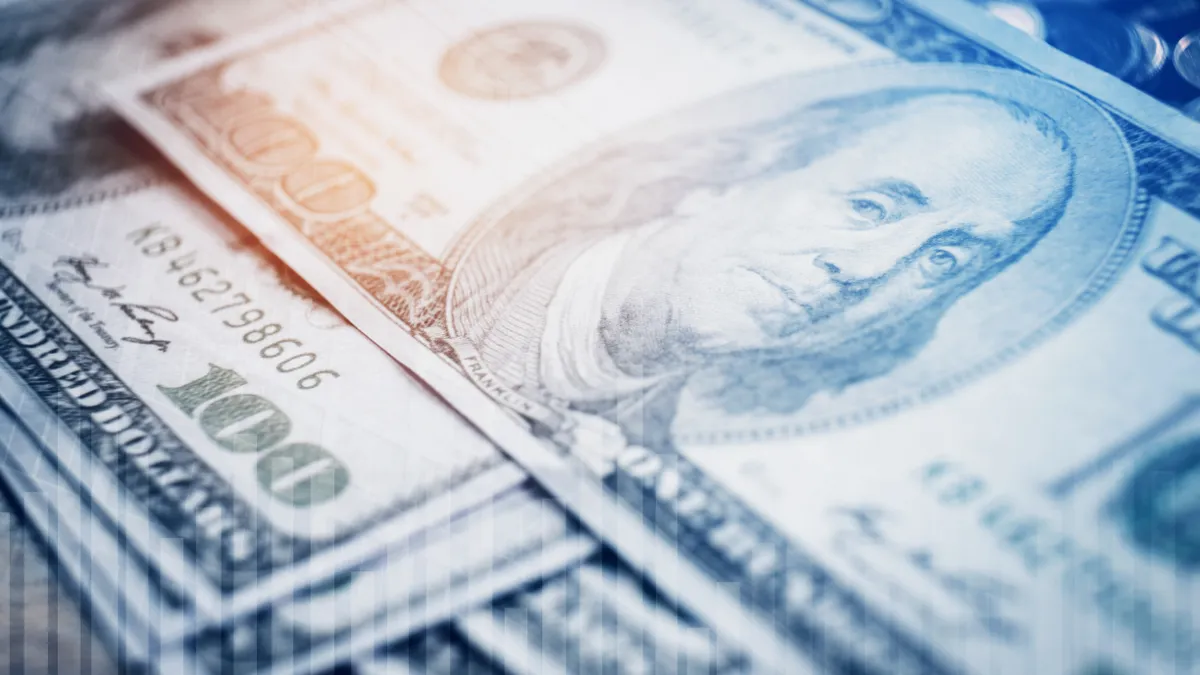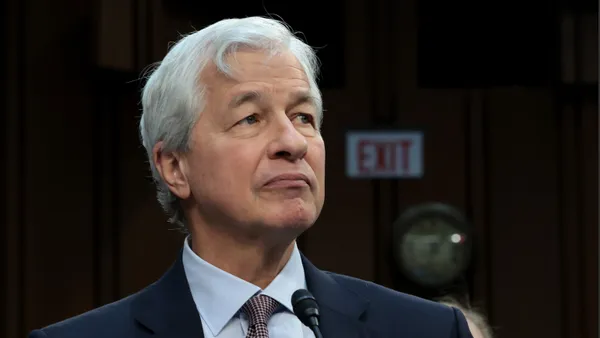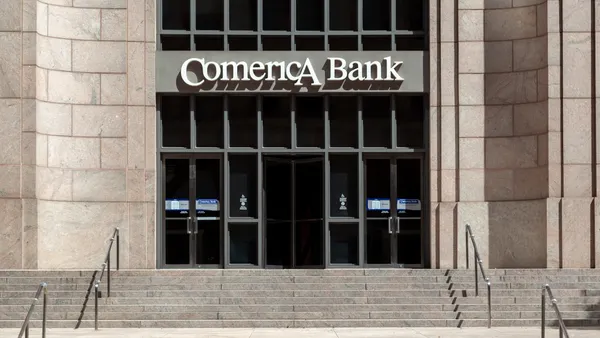Dive Brief:
- Goldman Sachs and Barclays are bidding to buy General Motors's credit-card business, people familiar with the matter told The Wall Street Journal and the Financial Times.
- GM's cards carry outstanding balances of about $3 billion — an amount that would more than double the value of Goldman's card portfolio, if it were to be chosen. Goldman's cards held $2.3 billion as of June 30, up from $1.9 billion at the start of 2020.
- It's not a certainty that GM will switch issuers. Capital One has issued the GM card since 2012 and still has about a year left on its contract. A decision is expected in the next few weeks, the Journal reported.
Dive Insight:
Goldman and Barclays have pitched the idea that cars can serve as e-commerce portals, sources told The Wall Street Journal — a prospect that may gain more cachet as the coronavirus pandemic pushes purchasers toward contactless payments.
GM was the first major car company to allow drivers to order food, pay for gas and book hotel stays from dashboard touch screens, the Journal reported, adding that the car company has partnered with merchants such as Dunkin' Donuts and Shell.
When consumers buy using the GM card, they earn rebates on the cost of GM vehicles. GM cardholders had $1.4 billion in outstanding rebates as of the end of 2019, according to the Financial Times. Those perks may not be as versatile as airline miles or hotel rewards. But because the coronavirus has tamped down on those silos of card value, now may be a good time for GM to shop its business, Brian Riley, a card analyst at Mercator, told the publication.
At stake in the deal are the revenues an issuing bank can earn from fees, interest and interchange costs related to purchases made on GM-branded cards. GM's annual aggregate purchase volume is less than $10 billion, David Morris, managing consultant at Kaleidoscope Research Consulting, told the Financial Times.
Acquiring an existing card portfolio may be a faster way for a bank to grow that segment of its business. And Goldman has been transparent about its ambitions in that arena. At its Investor Day in January, the bank laid out a vision to nearly triple its consumer loans and card balances by 2025 — to $20 billion from $7 billion.
Goldman showed itself capable of managing a co-branded card when it launched the Apple Card last year — an effort CEO David Solomon soon afterward called the "most successful credit card launch ever." The bank agreed not to launch another co-branded card for about a year, sources told The Wall Street Journal.
It also appears to be turning to partnerships to boost a business model that doesn't include brick-and-mortar branches and, according to the Financial Times, has lost 10% of its share value this year.
Barclays, by contrast, is much more established in the cards space, with $46 billion in card and other unsecured loans. The bank has taken $1.3 billion in loan-loss provisions this year related to its international credit card business, the FT reported.
A switch in card issuers can lead to bad blood. Current GM partner Capital One saw that firsthand when it signed a deal to launch co-branded cards with Walmart in 2018, bringing to retailer’s 19-year partnership with Synchrony to an acrimonious end.
Walmart sued Synchrony for $800 million, alleging the issuer underwrote the $8 billion card portfolio in a way that exposed the program to significant credit risk. Synchrony, in turn, accused the retailer of poorly promoting the program. Walmart dropped the suit two months later.
Such switches can also lead jilted partners toward aggressive tactics to retain business. When Costco dropped American Express in favor of Citi in 2015, AmEx's salespeople allegedly reached out to small-business clients it would lose and strong-armed them by misrepresenting card rewards and fees, checking credit reports without consent, and issuing unwanted cards, according to The Wall Street Journal.










